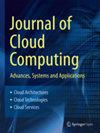AI-enabled legacy data integration with privacy protection: a case study on regional cloud arbitration court
IF 3.7
3区 计算机科学
Q2 COMPUTER SCIENCE, INFORMATION SYSTEMS
Journal of Cloud Computing-Advances Systems and Applications
Pub Date : 2023-10-14
DOI:10.1186/s13677-023-00500-z
引用次数: 0
Abstract
Abstract This paper presents an interesting case study on Legacy Data Integration (LDI for short) for a Regional Cloud Arbitration Court. Due to the inconsistent structure and presentation, legacy arbitration cases can hardly integrate into the Cloud Court unless processed manually. In this study, we propose an AI-enabled LDI method to replace the costly manual approach and ensure privacy protection during the process. We trained AI models to replace tasks such as reading and understanding legacy cases, removing privacy information, composing new case records, and inputting them through the system interfaces. Our approach employs Optical Character Recognition (OCR), text classification, and Named Entity Recognition (NER) to transform legacy data into a system format. We applied our method to a Cloud Arbitration Court in Liaoning Province, China, and achieved a comparable privacy filtering effect while retaining the maximum amount of information. Our method demonstrated similar effectiveness as the manual LDI, but with greater efficiency, saving 90% of the workforce and achieving a 60%-70% information extraction rate compared to manual work. With the increasing development of informationalization and intelligentization in judgment and arbitration, many courts are adopting ABC technologies, namely Artificial intelligence, Big data, and Cloud computing, to build the court system. Our method provides a practical reference for integrating legal data into the system.基于人工智能的遗留数据集成与隐私保护:区域云仲裁法院的案例研究
摘要本文提出了一个有趣的区域云仲裁法院遗留数据集成(简称LDI)的案例研究。由于结构和呈现方式的不一致,遗留仲裁案件很难融入云法院,除非人工处理。在本研究中,我们提出了一种基于ai的LDI方法,以取代昂贵的人工方法,并在此过程中确保隐私保护。我们训练人工智能模型来代替阅读和理解遗留案例、删除隐私信息、编写新案例记录并通过系统接口输入它们等任务。我们的方法采用光学字符识别(OCR)、文本分类和命名实体识别(NER)将遗留数据转换为系统格式。我们将该方法应用于中国辽宁省的一家云仲裁法院,在保留最大信息量的同时取得了类似的隐私过滤效果。我们的方法显示了与人工LDI相似的有效性,但效率更高,与人工工作相比,节省了90%的劳动力,实现了60%-70%的信息提取率。随着审判仲裁信息化、智能化的不断发展,很多法院都在采用ABC技术,即人工智能、大数据、云计算等来构建法院系统。该方法为将法律数据整合到系统中提供了实践参考。
本文章由计算机程序翻译,如有差异,请以英文原文为准。
求助全文
约1分钟内获得全文
求助全文
来源期刊

Journal of Cloud Computing-Advances Systems and Applications
Computer Science-Computer Networks and Communications
CiteScore
6.80
自引率
7.50%
发文量
76
审稿时长
75 days
期刊介绍:
The Journal of Cloud Computing: Advances, Systems and Applications (JoCCASA) will publish research articles on all aspects of Cloud Computing. Principally, articles will address topics that are core to Cloud Computing, focusing on the Cloud applications, the Cloud systems, and the advances that will lead to the Clouds of the future. Comprehensive review and survey articles that offer up new insights, and lay the foundations for further exploratory and experimental work, are also relevant.
 求助内容:
求助内容: 应助结果提醒方式:
应助结果提醒方式:


